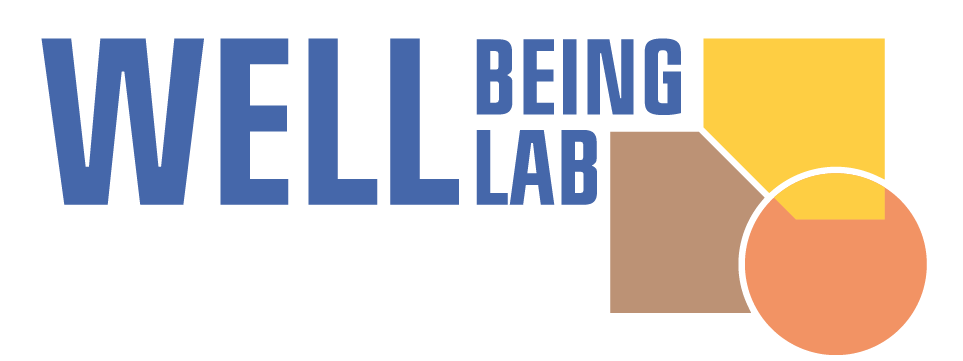What is the Dilemma Bank?
The Dilemma Bank is a unique platform where we gather authentic well-being dilemmas from students, young employees, and business leaders. It serves as a resource not only for reflection and teaching activities at CBS, but also for companies seeking to support lifelong learning and to give students, young employees and business leaders knowledge and inspiration that can provide a foundation for strengthening wellbeing in the transition from student life to working life.
The Dilemma Bank aligns with CBS’ Nordic Nine
The dilemma-bank supports the transformative capabilities, referred to as Nordic Nine, particularly NN#5 “You understand ethical dilemmas and have the leadership values to overcome them”.
Through hands-on practice, it fosters the development of skills essential for engaging ethically with oneself and others, including the problems and concerns students face when transitioning fra study to workplace.
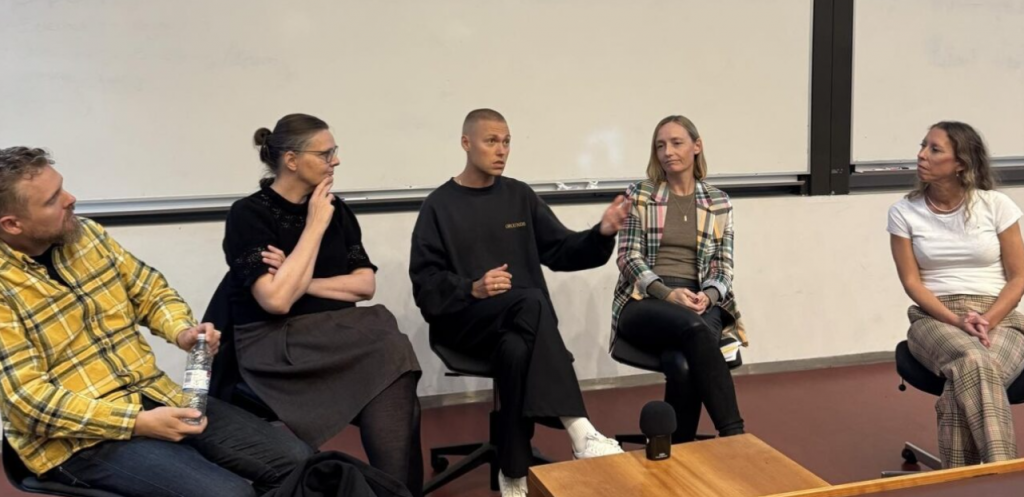

From Dilemmas to Insights
Ever felt the pressure to perform or the fear of not measuring up?
Tune in and listen to the podcast where experienced business professionals unpack real-life dilemmas submitted by students at CBS.
From the fear of underperforming to the shame of revealing uncertainty at school or work, the panel share reflections and calls for leadership to foster inclusive, supportive work cultures.
Get inspired and discover how to navigate dilemmas of your own and those around you. Listen here.
Useful resources in the Dilemma Bank
Making lectures more interactive, and encouraging critical thinking
The Dilemma Bank has gathered and made several resources about the dilemmas students have throughout their career. These resources consists of actual dilemmas sent from different individuals, podcasts where a panel discusses dilemmas that students have, articles about dilemma discussion session as well as teaching guidelines.
Dilemmas from students
These dilemmas were discussed in events like the CBS Well-being Conference, a student lecture on dilemmas, and the CBS Master Kick-off. Find the dilemmas below.
Listen to the dilemmas
You can listen to the recorded dilemma sessions featuring advice from CBS leaders and professionals by following the links below.
Teaching guidelines
Be inspired to incorporate dilemmas in your teaching and help students deepen their understanding and critical thinking skills in an interactive, meaningful way.
Dilemmas from students
This section provides you with several dilemmas sent from students, who addresses their concerns, questions and worries – all of them dilemmas, which the Dilemma Bank has gathered below
From a lecture at CBS
22nd of October 2024
Dilemma 1: Balancere forventninger
Jeg elsker mit arbejde og får energi af det. Jeg vil gerne leve 120 procent op til det, jeg tror, der bliver forventet af mig. Derfor vil jeg gerne knokle helt vildt meget og lægge rigtig mange timer i mit arbejde, men det begynder at blive for meget for mig. Jeg er begyndt at opleve fysiske symptomer på stress, såsom søvnbesvær og hjertebanken. Jeg har ikke lyst til at tale med min chef om det. Han er ikke særlig behagelig, og hvis jeg skal tage en dialog med ham om noget, jeg synes er svært, så er jeg bange for at han vil opfatte mig som svag. Jeg ved godt at mit helbred er i fare, og at jeg har brug for at tage en pause, men jeg vil også gerne leve op til de høje standarder. Det er så nemt for mig at hoppe ind i hamsterhjulet og bare speede derudaf. Jeg får energi af det og bliver faktisk en lille smule høj af at arbejde.
Hvordan balancerer jeg stress og høje forventninger, når jeg elsker mit arbejde og får energi af det, men samtidig oplever fysiske stresssymptomer, når det bliver for meget?
Dilemma 2: Tale eller forblive tavs?
Jeg arbejder i stor organisation og er netop vendt tilbage efter 10 måneders barsel. Jeg kan se, at arbejdspresset i afdelingen er steget markant. Tre af mine kolleger er blevet stresssygemeldte inden for det seneste år og afdelingen har haft stor medarbejderudskiftning. Medarbejderne har et generelt anstrengt forhold til afdelingslederen. Problemerne er blevet rejst overfor HR, men der er ikke sket nogen forbedringer – flere af mine kolleger er “faldet som fluer.” Den trykkede stemning og negative atmosfære i afdelingen påvirker os alle. Jeg har bemærket, at min teamleder, som har været sygemeldt med stress, er direkte bange for min afdelingsleder. Jeg oplever også en følelse af skam, som kommer til udtryk i mine krav og forventninger til mig selv om at skulle gøre en forskel. Jeg oplever også skyld ved at klare mig bedre end mine kolleger, der bukker under.
Mit dilemma er, om jeg skal tage initiativ til at adressere problemerne, selvom jeg frygter de udfordringer, det kan medføre. Dvs. skal jeg hjælpe andre og tage ansvar, eller beskytte mig selv ved at forblive tavs – velvidende, at jeg måske samtidig svigter både kolleger, der allerede er ramt af stress, og dem, der endnu ikke er blevet det?
Dilemma 3: Ensomhed på arbejdspladsen
Jeg er en 26-årig kvinde, der efter endt studium nu er blevet graduate i en IT-afdeling. Udover mig består afdelingen kun af to andre medarbejdere. Allerede på min første arbejdsdag så jeg, at begge mine kollegaer arbejder hjemmefra. Det skabte en følelse hos mig af at være alene – en følelse, som bliver forstærket ved frokosttid, hvor jeg ikke føler mig tryg ved at sætte mig ned i kantinen alene. For at modvirke følelsen af at være alene, har jeg nu forsøgt at arrangere faste frokostmøder med de andre graduates fra andre afdelinger hver mandag, og jeg har også fået en relation til en graduate, som jeg kan kontakte de resterende dage i ugen for ikke at ende i en situation, hvor jeg skal spise frokost alene.
Hvordan håndterer jeg som en ny medarbejder bedst følelsen af at være alene og den skam, der følger med på en arbejdsplads, hvor kollegerne primært arbejder hjemmefra, særligt i situationer som frokostpausen, hvor jeg ofte føler mig mest alene?
From CBS Well-being Conference
1st of October 2024
Dilemma 1 – How should I balance my studies versus my student job?
I am a 5th-semester student, and I find it challenging to balance the time spent on studies versus my student job. There’s also a difference in the types of jobs to consider — should I prioritize my study life and well-being and choose a job at a workplace I know is safe, supportive and manageable, even if it isn’t very prestigious or looks impressive on a CV? Or should I gain experience from the “right” places with a so-called steep learning curve, where it can be hard to keep up, but the experience is more valuable for my future career?
So, my questions are: how do I find a balance between the pressure to maintain good grades to get into my dream master’s program, and the time and energy I dedicate to my student job, which is also important for my future? Should I focus on having a good, well-balanced study life this last year, or should I sacrifice it for my future career?
Dilemma 2 – How should I take care of my invisible disability without talking myself down?
I have just finished my master at CBS, and I am having my first job-interview next week. I have social anxiety, and during my time at CBS I have often experienced that my anxiety was a problem when I was working in groups and when I should do a presentation before others. If I tell my new workplace about my anxiety, I’m unsure whether it has the implication that I will not get the job. I have done well in general at my studies, so I think that I can handle a job well.
I don’t know whether I should be open about it in the interview. And if I get the job, how can I best articulate my needs and requests to my colleagues. And should I even do it? And how to start the conversation with colleagues in a good way without becoming a victim.
Dilemma 3 – How do I navigate my stressful job besides my studies?
I have a study-relevant job in a small company where there is a great deal of individual responsibility. I feel a strong sense of responsibility for my tasks and strive to complete them to perfection. I often feel that if I don’t do everything flawlessly, things will fall apart, and it will be my fault. At the same time, I notice that some of my team members don’t seem to take as much responsibility for their tasks, and honestly, I sometimes feel that they lack seriousness. As a result, I end up working even harder and put in a lot more hours than at the average student job
How can I navigate this tendency to overcompensate by working faster and harder, which only leads to increasingly high expectations for myself to be the one carrying the shared load — the company’s goals? Some people might say, “Take a break, it will all be fine,” but for me, it often feels like, “Everything will fall apart if I don’t do this,” so I can’t just take a break. As a young and unexperienced employee, I also feel like I must prove my worth.
From Master Kick-off at CBS
30th of August 2024
Dilemma 1 – study or work?
I am about to start my masters program, and I find it difficult to find out how much energy I should put in my studies versus my study job. I see my study mates split up into different groups with completely different attitudes towards this question.
One group is almost entirely focused on getting out into the job market, and they see their study job as the most important place to put in time and acquire relevant, employable competencies for the future. They don’t believe the master’s will give them much other than the MSc-diploma, which many employers require to take your serious enough. For the other group the precious and privileged time of being a student, studying and learning about the world is coming to an end, and they want to get the most out of their final years of intellectual exploration and living in your own pace. As they say, we have plenty of time to go all in on work, when we start our long work life. For them, the study job is still good to have as practical experience on your CV, but the work hours are kept to a minimum to give room to a good study life.
I feel myself drawn by both their mindsets, but it splits me in my approach to the next few years. How should I find my motivation?
Dilemma 2: “My masterplan is falling apart”:
For many years, I’ve had a master plan that my future career should be within management consulting, but as I approach the end of my master’s programme, I begin doubting whether this is actually the right move for me.
It started in high school, when my dad told me that management consultants were the elite soldiers of business. That led me to chase the dream of becoming one myself. At CBS, I’ve had the privilege of having a study job at a prestigious consultancy. It has taught me a lot, and I have immense respect for my full-time colleagues, who truly are elite soldiers. However, now where I can see what kind of lifestyle that career requires of you, for better and worse, I feel something inside myself doubting whether this is right for me. On the other side, if I didn’t go into consulting after my studies, I don’t know what others career path to take.
I don’t know if I’m holding on to consultancy, simply because it has been the master plan for much of my life. What is your advice?
Dilemma 3 – How can I be honest about my disability?
I have social anxiety, and I don’t know whether I should be open about in my new study group at my master’s program (I am a 1st year student).
I have only recently been diagnosed with a moderate degree of social anxiety, and during my bachelor’s program at CBS, I’ve had some bad experiences with study groups. Many times, I’ve felt uncomfortable in the intense sociality/togetherness and confrontational discussions of being in a study group and working together on big assignments. Many of my former study group members have been quite dominant characters, who probably believed that they were the best to lead the group or define the assignment. A few times, I’ve tried to speak my mind when I had another idea or disagreed, and it led to unpleasant confrontations. Since that, I’ve mostly just kept my opinion to myself and followed the mood in the group.
If I tell my new study group about my anxiety, I’m unsure whether it will make them more considerate and patient when I try to contribute to discussions, or whether I will simply rule myself out of the discussions in advance. What should I do?
Listen to the dilemmas
In this section you can listen to the above standing dilemmas submitted by students, in dilemma sessions facilitated by Karriereklubben.
From a lecture at CBS
The dilemma session has hosted by Pernille Steen Pedersen, and was facilitated by KarriereKlubben. The panel consisted of:
- Danijel “Drux” Deletic, Cultural Entrepeneur.
- Kasper Skovgaard Pedersen, Chairman for Finansforbundet i Nordea.
- Mia Jung, Head of Leadership Development and Leadership Coach, Copenhagen School of Entrepreneurship.
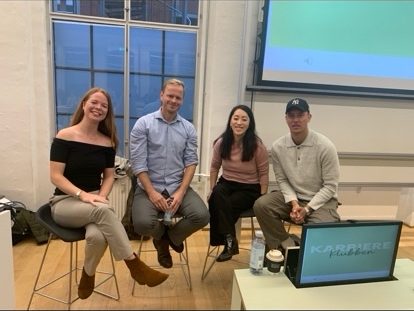
You can listen to the dilemma session below
From CBS Well-being Conference
The dilemma session has hosted by Well-Being Conference, and was facilitated by KarriereKlubben. The panel consisted of:
- André Thormann, Senior analyst at Danske Bank and External Lecturer at CBS
- Benjamin Anker, Specialist consultant Agency for Digital Government and teaching Assistant CBS
- Cecilie Louise Svane Olesen, Department head from Finance and corporate Governance, Ministry of the Interior and Health

You can listen to the dilemma session below
You can also read about how it was having Karriereklubben at the CBS Well-being conference, facilitating their live session:
From Master Kick-off at CBS
The dilemma session has hosted by CBS Master Kick-Off, and was facilitated by KarriereKlubben. The panel consisted of:
- André Thormann, Analyst at Danske Bank
- Kasper Holst Hansen, Founder of Matematikfessor and Flying Bizkit
- Victoria Heger Witzeling, D&I Lead

You can listen to the dilemma session below
Teaching Guidelines
Examples on how to use dilemmas in your teaching
Below you will find videos that explain how dilemmas can be incorporated in teaching.

Dilemma session in teaching
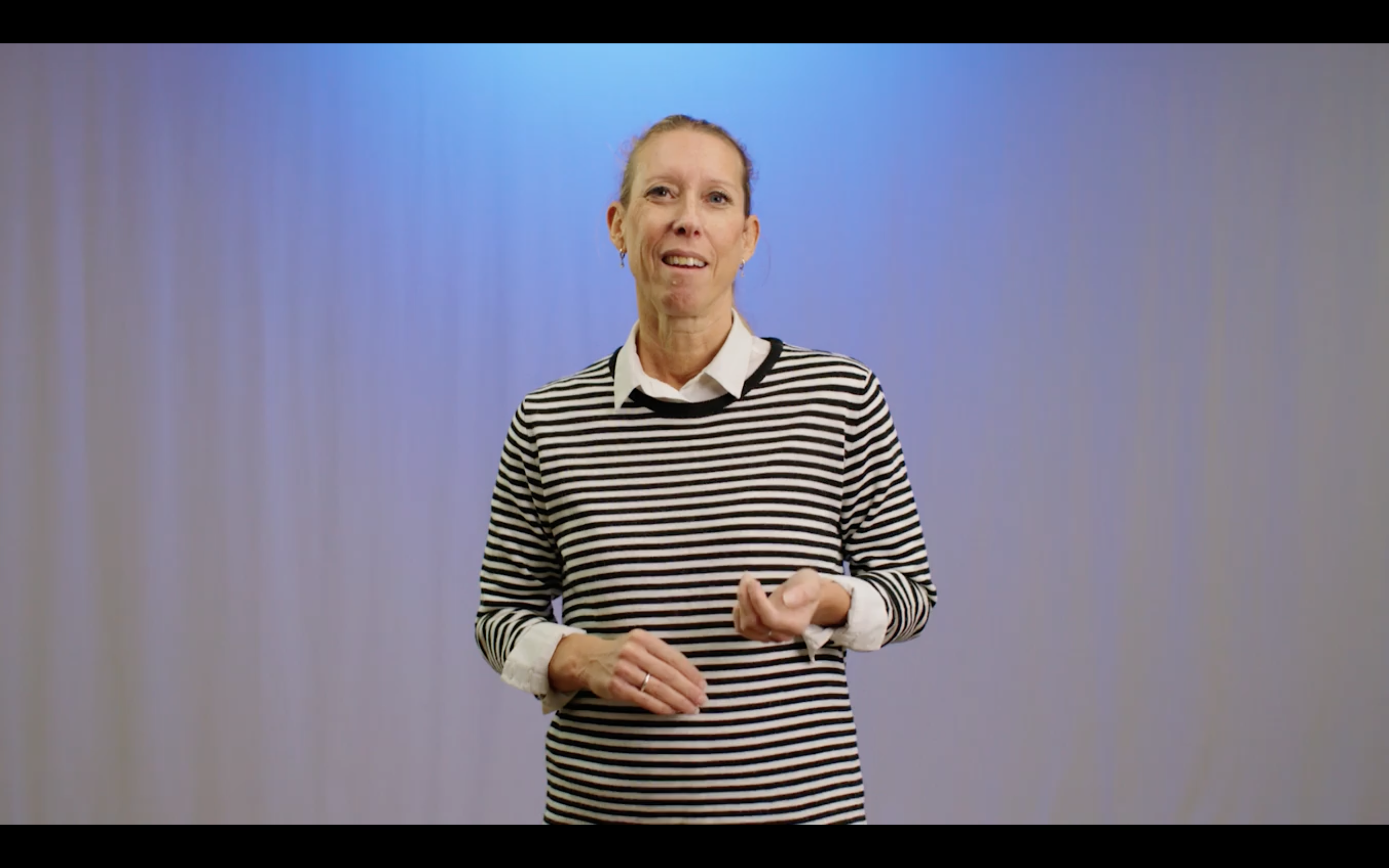
Pernille introduces the session
In this video, Pernille explains how students from the course “Stress, Shame and Leadership” were asked to come up with dilemmas for the panel to discuss. This would encourage them to think critically about wellbeing and their either current or future work life. By discussing real dilemmas in panel sessions, CBS fosters interactivity, critical thinking, and practical insights. The session not only connects students with real life situations, but also help them navigate real-world challenges and develop solutions relevant to their personal and professional growth.
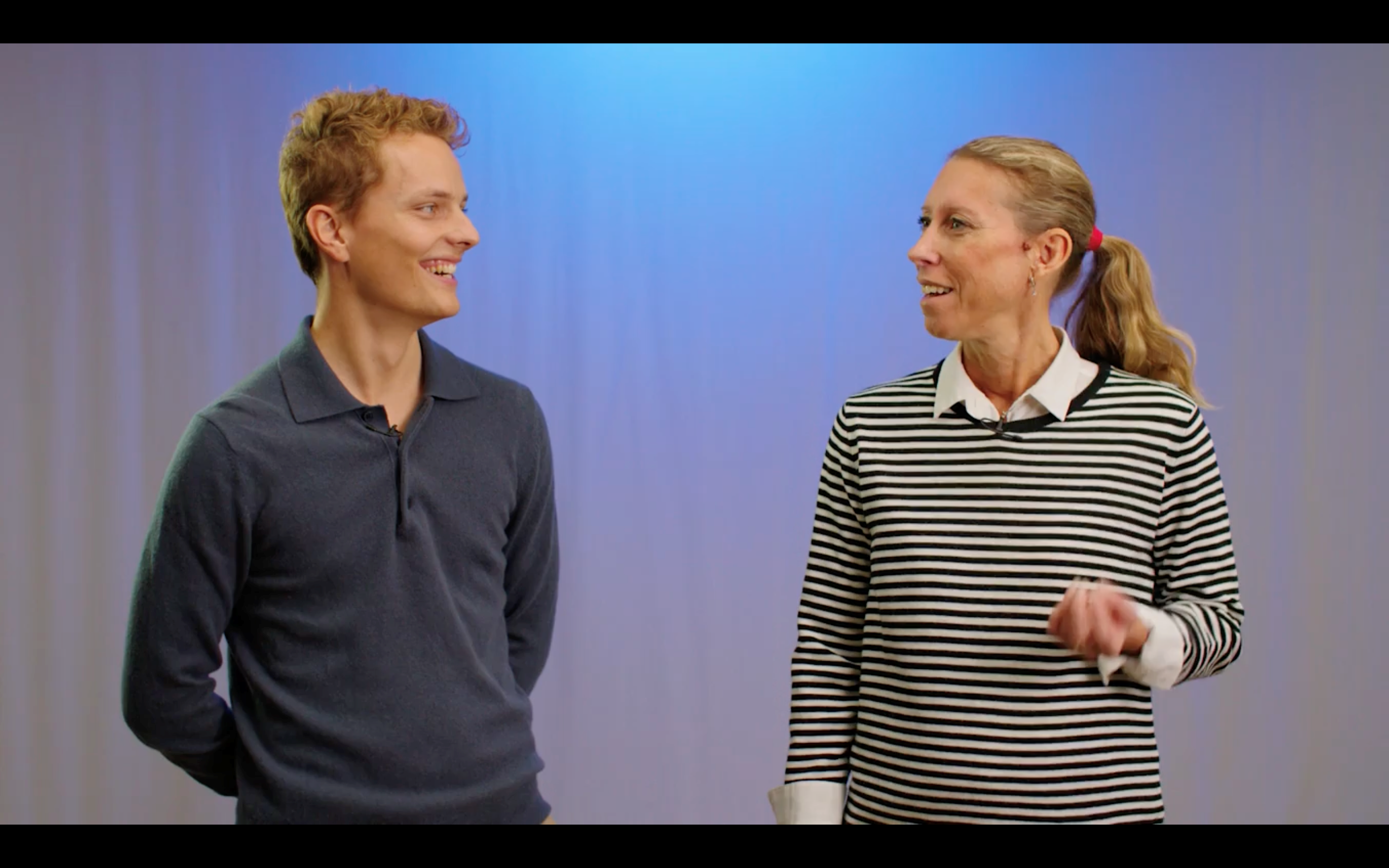
Student thoughts on the exercise
Concrete Teaching Guidelines
Below, you’ll find two teaching guidelines designed to help integrate the dilemmas into your course. The first guide focuses on using the dilemmas in lectures or exercises, providing a structure for students to reflect on these challenges either collectively in class discussions or individually through assignments. This approach includes suggestions for pre-listening preparation, group activities, and reflective exercises that encourage deeper engagement with the material.
The second guideline offers a step-by-step process for creating a live dilemma session with a panel, where students can interact directly with guests. This guide includes tips on selecting relevant dilemmas, moderating discussions, and giving students practical experience in creative and ethical decision-making within dilemmas.
